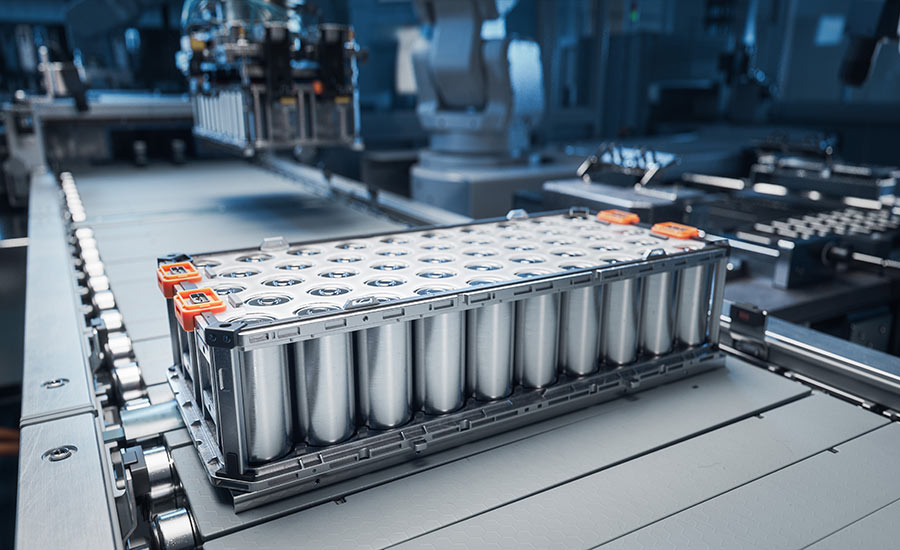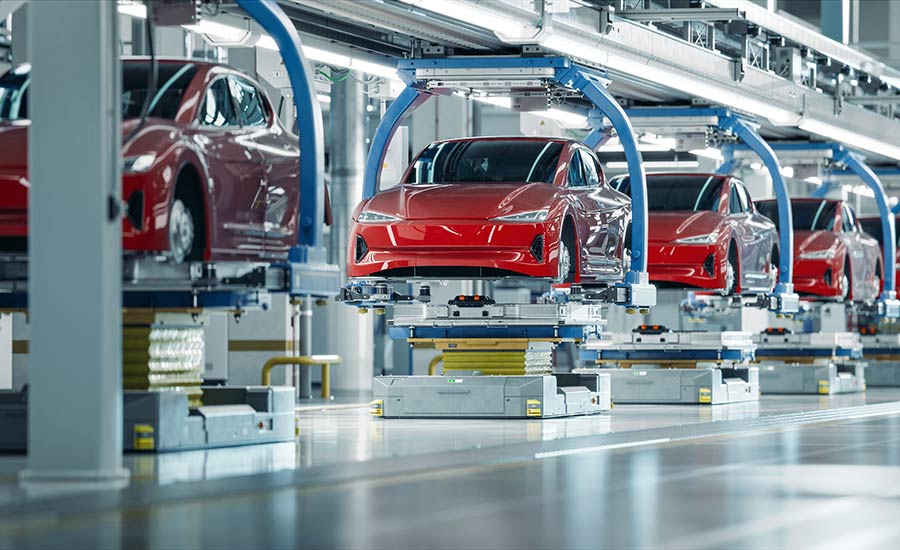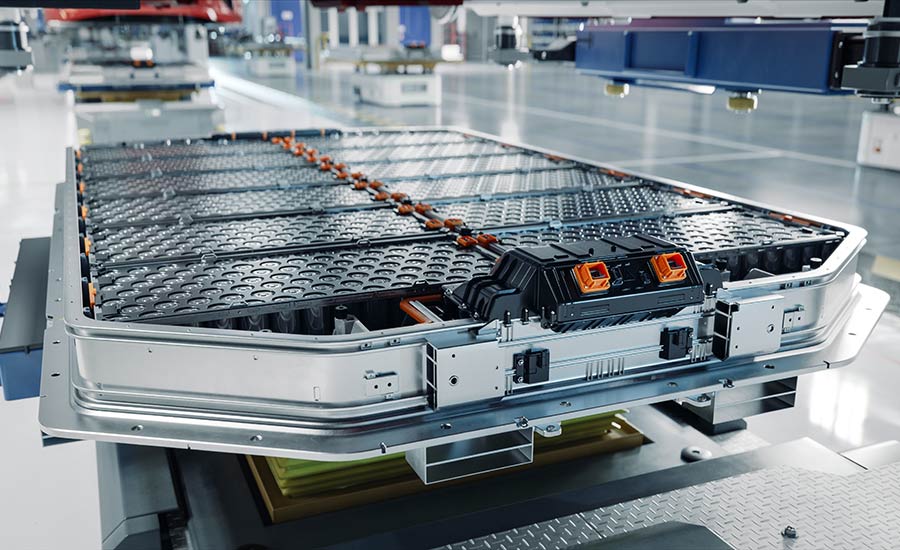
Batteries are the core of modern devices, powering over 3 billion smartphones globally and fueling the rapid growth of electric vehicles and renewable energy systems.
The demand for portable and sustainable energy solutions continues to rise, and this is causing leading battery companies to create new ways to power our lives.
In this blog post, we’ll explore the key players in the battery manufacturing industry, their groundbreaking innovations, and how they are driving the evolution of modern devices.
Top Battery Manufacturers Shaping the Future of Energy
The global demand for efficient and sustainable energy solutions and electronic components has moved several companies to the forefront of battery technology.
These top battery manufacturers are not only meeting today’s needs but also pioneering advancements that will shape the future of energy.
The top battery manufacturers include:
Panasonic: A Pioneer in Battery Technology
Panasonic has been a leader in battery technology for decades, known for its high-quality lithium-ion batteries. The company supplies batteries to various industries, including consumer electronics, automotive electronics, and renewable energy sectors.
Panasonic is a key partner of Tesla, supplying batteries for Tesla’s electric vehicles (EVs) and energy storage solutions. Their collaboration at the Gigafactory in Nevada has significantly boosted the production capacity and development of advanced battery technologies.

CATL: Leading the Charge in EV Batteries
Contemporary Amperex Technology Co. Limited (CATL) is a Chinese company that has rapidly emerged as a dominant player in the electric vehicle battery market. CATL specializes in the development and manufacturing of lithium-ion batteries for EVs and energy storage systems.
CATL became the world’s largest EV battery manufacturer by market share in 2020, supplying batteries to major automotive brands such as BMW, Volkswagen, and Daimler.
The company’s innovative CTP (Cell-to-Pack) technology increases energy density by eliminating the need for modules, directly integrating cells into battery packs, which enhances the overall efficiency and reduces costs.
LG Chem: Innovations in Energy Storage
LG Chem, a South Korean chemical company, is a major supplier of lithium-ion batteries for a wide range of applications, including electric vehicles, renewable energy storage, and consumer electronics.
LG Chem’s Energy Solution division has secured partnerships with major automakers like General Motors, Hyundai, and Renault-Nissan, positioning itself as a key player in the global EV market.
The Ultium battery system, developed in collaboration with General Motors, features modular and flexible design elements that can be adapted to various vehicle models, offering improved range and performance.
BYD: Revolutionizing Battery Solutions
BYD (Build Your Dreams) is a Chinese company renowned for its innovations in battery technology and electric mobility. BYD produces a range of battery solutions for electric vehicles, energy storage systems, and consumer electronics.
BYD is not only a leading battery manufacturer but also one of the largest electric vehicle manufacturers globally, producing electric buses, trucks, and passenger cars.
BYD’s Blade Battery, a new generation of lithium iron phosphate (LFP) battery, boasts enhanced safety, longevity, and energy density. Its unique design minimizes the risk of fire, addressing one of the major concerns associated with lithium-ion batteries.
Samsung SDI: Advancements in Battery Design
Samsung SDI, a subsidiary of Samsung Group, is a prominent player in the development of advanced battery technologies for various industries, including automotive, energy storage, and consumer electronics.
Samsung SDI has made significant strides in solid-state battery technology, which promises higher energy densities, improved safety, and longer life cycles compared to conventional lithium-ion batteries.
The company’s high-capacity prismatic batteries are used in BMW’s electric and hybrid vehicles, providing reliable and efficient power sources that enhance the performance and range of these cars.
CTA: Want to more know about industry leaders? Read our Insights.
Innovations in Battery Technology: From Lithium-Ion to Solid-State
Battery technology has seen remarkable advancements over the years, transitioning from traditional lead-acid and nickel-cadmium batteries to modern lithium-ion and emerging solid-state batteries.
These innovations are driving significant improvements in energy density, safety, and overall performance.
The key developments in battery technology include:
Lithium-Ion Batteries: The Powerhouse of Modern Devices
Lithium-ion (Li-ion) batteries have become the standard for most portable electronics, electric vehicles, and renewable energy storage due to their high energy density, lightweight design, and long cycle life.
The first commercial lithium-ion battery was introduced by Sony in 1991. Since then, continuous improvements have significantly enhanced their capacity and safety.
Key advantages:
- High energy density: Li-ion batteries can store a large amount of energy in a small volume, making them ideal for compact devices.
- Lightweight: They are lighter than other rechargeable batteries of the same capacity, which is crucial for portable electronics.
- Long lifecycle: Li-ion batteries can be recharged many times before their capacity significantly diminishes.
- Low self-discharge: They lose a relatively small amount of charge when not in use.
Li-ion batteries power everything from smartphones and laptops to electric vehicles like the Tesla Model S. Advances in cathode and anode materials, such as the use of nickel-cobalt-aluminum (NCA) and nickel-manganese-cobalt (NMC) chemistries, have further boosted their performance.
Solid-State Batteries: The Next Generation of Energy Storage
Solid-state batteries represent a major leap forward in battery technology. Unlike conventional batteries that use liquid electrolytes, solid-state batteries employ solid electrolytes, which offer numerous benefits.
Key advantages:
- Increased energy density: Solid-state batteries can store more energy in a smaller space, which is crucial for applications like electric vehicles.
- Improved safety: Solid electrolytes reduce the risk of leakage and thermal runaway, making solid-state batteries inherently safer.
- Longer lifespan: These batteries can endure more charge-discharge cycles, extending the battery’s operational life.
QuantumScape, a prominent player in solid-state battery technology, has developed a battery that can charge to 80% capacity in just 15 minutes, potentially revolutionizing the EV industry by addressing range anxiety and charging times.
The Role of Battery Companies in the Electric Vehicle Revolution
Battery technology is at the heart of the electric vehicle (EV) revolution and the demand for EVs continues to reach all-time highs.
The leading manufacturers are affecting the EV industry in various ways, such as:
Important Advances in Battery Technology
Battery companies are focused on increasing the energy density of their products, which directly impacts the range of electric vehicles. Higher energy density means that more energy can be stored in the same amount of space, allowing EVs to travel further on a single charge.
Tesla, in partnership with Panasonic, has developed high-energy-density batteries that enable their vehicles to achieve impressive ranges, such as the Model S Long Range, which can travel over 370 miles on a single charge.
Reducing charging times is crucial for the widespread adoption of EVs. Battery companies are investing in technologies that allow for rapid charging without compromising battery life or safety.
CATL’s fast-charging technology, used in the latest generation of EVs, allows for an 80% charge in just 15 minutes, significantly reducing the downtime for EV owners.
Enhancing Safety and Longevity of Batteries
Effective thermal management systems are essential to prevent overheating and improve the longevity of batteries. Companies are developing advanced cooling technologies to maintain optimal battery temperatures during operation and charging.
LG Chem’s battery packs feature sophisticated thermal management systems that enhance safety and extend the lifespan of the batteries, making them more reliable for long-term use.
The development of solid-state batteries promises to improve safety by eliminating flammable liquid electrolytes and enhancing energy density. These batteries are expected to have longer lifespans and better performance at higher temperatures.
Toyota’s investment in solid-state battery research aims to introduce EVs with solid-state batteries by the mid-2020s, offering safer and more efficient alternatives to current lithium-ion technology.
Scaling Production and Reducing Costs
Large-scale production facilities, known as gigafactories, are being built to meet the growing demand for EV batteries. These factories are designed to produce batteries at a scale that drives down costs and increases supply.
Tesla’s Gigafactory 1 in Nevada, developed in collaboration with Panasonic, is one of the largest battery manufacturing plants in the world. It significantly reduces production costs through economies of scale, helping make EVs more affordable.
Battery companies are increasingly adopting vertical integration strategies to control the entire supply chain, from raw material extraction to battery production. This approach helps in securing supply, reducing costs, and ensuring quality.
BYD, one of the largest electric vehicle and battery manufacturers, controls the entire battery production process, including mining lithium, producing battery cells, and assembling battery packs, allowing for greater efficiency and cost savings.
Sustainable Practices in Battery Manufacturing
As the demand for batteries continues to grow, so does the need for sustainable practices in their manufacturing and lifecycle management.
The key sustainable practices in battery manufacturing include:
Recycling Initiatives by Leading Battery Companies
Leading battery manufacturers are investing heavily in recycling initiatives to minimize waste and conserve valuable resources.
Tesla, for example, has developed a closed-loop recycling system at its Gigafactory, recovering critical materials like lithium, cobalt, and nickel from used batteries.
Umicore, a specialist in battery recycling, operates an industrial-scale plant in Belgium that recovers up to 95% of metals from spent batteries, supporting a circular economy for battery materials.
Eco-Friendly Production Processes in Battery Manufacturing
Eco-friendly production processes are being adopted to reduce the environmental impact of battery manufacturing.
Panasonic uses renewable energy sources like solar and wind power at its facilities, including its collaborative Gigafactory with Tesla.
LG Chem’s plants, such as the ISO 14001 certified Ochang plant, focus on reducing water usage, emissions, and waste.
Reducing Carbon Footprint Through Sustainable Practices
Battery companies are implementing various strategies to reduce their carbon footprint.
CATL’s Yibin plant in China incorporates energy-efficient processes and green technologies to lower emissions.
BYD integrates renewable energy sources, including solar and hydropower, into its manufacturing operations in China.
Volkswagen, in partnership with Northvolt, is establishing a battery factory in Sweden powered entirely by renewable energy, ensuring that the production process is sustainable and environmentally friendly.

Global Supply Chain and Market Trends in Battery Production
The battery production industry is witnessing rapid growth and significant changes driven by technological advancements, increasing demand for electric vehicles (EVs), and the push for renewable energy.
The most popular trends currently include:
Expansion of Battery Manufacturing Capacity
The global demand for batteries, particularly lithium-ion batteries, has led to a substantial increase in manufacturing capacity.
Companies like Tesla, CATL, and LG Chem are expanding their production facilities worldwide to meet the growing needs of the EV and energy storage markets.
Gigafactories are being established in strategic locations to enhance production efficiency and reduce transportation costs.
Securing Raw Material Supply
The surge in battery production has intensified the competition for essential raw materials like lithium, cobalt, and nickel. Companies are investing in securing long-term supply contracts and exploring sustainable mining practices.
Efforts are also being made to reduce reliance on scarce materials by developing alternative battery chemistries.
For example, lithium iron phosphate (LFP) batteries, which do not require cobalt, are gaining popularity due to their cost-effectiveness and safety advantages.
AGS Devices: A Trusted Distributor of Electronic Components
AGS Devices specializes in the distribution of high-quality resistors, ensuring each product meets stringent standards. Our comprehensive quality control system provides authenticity and high-performance standards are required in various applications.
We also distribute electronic components such as:
- Power Supply Distributors
- Optoelectronics
- Circuit Protection
- Interconnects
- Passive Components Electronics
- Electronic Testing Equipment
- Electromechanical Devices
We are dedicated to supplying resistors that are reliable and durable. The team at AGS understands the critical role resistors play in electronic circuits, and we have many procedures in place to make sure that every component we distribute contributes to the optimal functioning of your projects.
As a leading distributor of resistors, our goal is to boost the efficiency and reliability of your supply chain.
